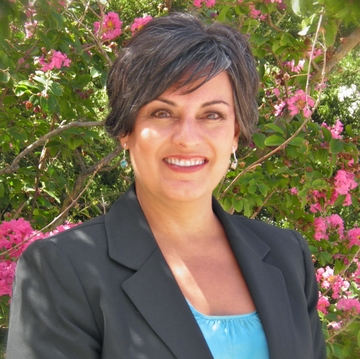An Immersive Journey to Learn Navajo Health Practices

UNM’s TREE Center Piloting Mental Health Research in Rural New Mexico Communities
The impact of trauma on children, substance abuse and the stress that blended-immigration status families are suffering in today's chaotic immigration environment are critical issues facing many New Mexicans.
These problems affect health in a variety of ways, raising the risk for teen suicide, for example, and affecting school, family and community. Meanwhile, many in New Mexico lack access to critical care for substance abuse and mental health.
Now, through a uniquely funded center at UNM West, the UNM Health Sciences Center is working to improve research and services tailored to the distinctive needs of underserved New Mexican communities.
"It is not enough to have a clinical or primary care intervention alone to address our behavior health issues," said Lisa Cacari Stone, PhD, director of the UNM TREE Center. "Success involves creating a multi-level approach,"
Housed at UNM West, the TREE Center (Transdisciplinary Research, Equity and Engagement Center for Advancing Behavioral Health), is funded through the National Institute on Minority Health and Health Disparities, a branch of the National Institutes of Health. It was created with the aim of using a multi-pronged approach to mental health outcomes tailored to particular populations.
"In a large rural state with unique populations, the question has to be how are we going to leverage impact?" Cacari Stone said. "It is not enough to have a clinical or primary care intervention alone to address behavior health issues."
Another TREE Center goal is to build the underrepresented minority research workforce.
"We believe that not only should our research be tailored to the individual needs of New Mexico communities but our researchers also need to look and sound like the people they are serving," Cacari Stone continued.
"UNM is well positioned to train and mentor Native American minorities. As it is now, Native American researchers receive less than one percent of NIH funding and Latinos are under-represented. We need to focus training and retaining these researchers.".
Cacari Stone is one of four principal investigators on the TREE Center grant, which is beginning operations in Rio Rancho at UNM West. The others are Steven Verney, PhD, associate professor in the Department of Psychology; Maria Yellow Horse Brave Heart, PhD, associate professor in the Department of Psychiatry & Behavioral Sciences and Gabriel Sanchez, PhD, professor in the Department of Political Science and executive director of the Robert Wood Johnson Fellow Center for Health Policy.
"We wanted a co-leadership model," Cacari Stone said. "We believe the transformational nature of our work needs that approach."